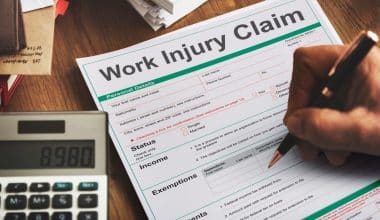We have done extensive research on employer liability insurance, coverage, and limits, which cover situations in which an employee or former employee files a lawsuit seeking compensation for a work-related illness or damage. The purpose of this analysis is to establish if employer liability insurance will provide coverage for the claimed amount and any associated legal fees spent in defending against the lawsuit. Refer to the article below for more details.
Employer Liability Insurance
Employer’s liability insurance protects the insurance company from lawsuits brought by employees doing business-related responsibilities. This coverage applies to work-related accidents or diseases that cause damage, incapacity, or death. Moreso, if the insured is responsible for medical expenses, economic compensation responsibilities, and legal fees, the insurer will compensate up to the predetermined maximum under the Labor Law and labor contract.
Functions
Compensation for losses Also, in the event of a fatality or disability as a result of the events given below, the insurer will assume the financial burden of compensation normally borne by health insurance, subject to the terms and conditions of the insurance contract agreement.
- The occurrence of the accident occurred within the designated working hours and within the confines of the workplace, with its root cause attributed to work-related factors.
- The occurrence of the accident takes place either before or following the designated working hours, within the confines of the workplace. The worker is also doing something relating to their employment, like getting ready for work or wrapping up a project. This refers to occupational accidents that occur during working hours and within the workplace, where employees are subjected to acts of violence while carrying out their job responsibilities.
- The workers’ illness has been officially listed as an occupational ailment.
- In the context of physical exercise, individuals may have injuries as a consequence of occupational activities or be absent from exercise sessions due to accidental circumstances.
- During the commute to or from work, individuals may experience injuries resulting from traffic incidents.
- During normal business hours and inside the bounds of the workplace, deaths due to sudden sickness or after a rescue operation are known to happen within a span of 48 hours. Additional circumstances are stipulated within the insurance agreement.
Features
- The contractual obligation guarantee is established in the employment contract between the employer and the employee.
- The singularity of insurance liability means that only injuries paid for by workers in the course of their employment have coverage, whereas damage to personal property is not.
Is Employer’s Liability the Same as Workers’ Compensation?
Most workers’ compensation policies also protect the employer in the event of a lawsuit, so the two types of insurance are related but distinct. Additionally, an employee’s medical bills and missed wages are covered by workers’ compensation insurance if they are hurt or become ill on the job. More so protect yourself from lawsuits filed by sick or injured employees by purchasing employer liability insurance.
Employer Liability Insurance Coverage
There are five basic categories of cases for which employers’ liability insurance coverage can provide protection.
#1. Lawsuits Alleging Negligence
If an employee gets hurt on the job and you don’t do enough to avoid it, you could face legal consequences. One of your cooks suffers a burn on the job. Also, the worker’s compensation insurance you have should pay for their medical expenses and missed wages. But imagine if the employee sustained serious injuries and you filed a claim for negligence on the grounds that you fell short of providing a safe kitchen environment. If that’s the case, the business’s liability insurance might help foot the bill.
#2. Lawsuits Resulting From Secondary Injuries
An employee’s injury at work has far-reaching consequences. However, those who look after them may also be hurt. A spouse may file a lawsuit if they suffer from illness or injury while caring for an injured worker. For instance, a partner may state that they hurt their back getting their partner out of the car after physical therapy sessions. Employers’ liability insurance can help defray some of the costs of the claim.
Employer liability insurance coverage can help pay for legal fees if an employee sues your company after suffering an injury on the job. Let’s imagine one of your workers is hurt when the loader on a backhoe falls on them. The worker has the option of filing a lawsuit against the maker of the backhoe. However, if the maker of the backhoe decides you didn’t maintain it correctly, they may file a lawsuit against you. These lawsuits do happen. Employers’ liability insurance might help you pay for damages if it happens.
#4. Claims of “Dual Capacity”
If an employee gets hurt while using a product you manufacture, you could face liability both as an employer and as the product’s manufacturer, depending on the laws in the area. Purchasing employer liability insurance coverage could save you, the equipment manufacturer, from suffering more, perhaps devastating damages.
#5. Claims for Loss of Companionship
In the event of an employee’s injury or death, their dependents may seek compensation for the loss of consortium. Workers’ compensation, disability, and death payments are in addition to any compensation awarded for such claims.
Employer Liability Insurance Limits
Employer liability insurance may not protect some employers. furthermore, employer accountability is not limited by criminal behavior, fraud, illicit profit or advantage, willful law violation, downsizing, layoffs, workforce restructuring, factory closures, strikes, mergers, or acquisitions Further, employers’ liability insurance limits will not cover financial obligations to employees if the employer knowingly aggravates their work-related sickness or illness. Additionally, many nations do not cover punitive damages. Also, commercial employers’ liability insurance limits plans may have a “most-favored jurisdiction” clause that restricts coverage to punitive damages states. Consider an American company with employees nationwide. Also, the accident occurred in a state where employers’ liability insurance limits do not cover punitive damages. Finally, the provision safeguarding the corporation from employee lawsuits will include punitive penalties if its headquarters are in a state that allows them.
How Is Employers’ Liability Insurance Different From General Liability?
Let’s start by comparing and contrasting the two most common types of liability coverage: general liability and employers’ liability. Both policies should have your back if an accident results in physical harm. After you submit the accident to them, they will cover all of your expenses until you reach a settlement, including legal fees and medical care.
Explain what sets them apart. Insurance policies typically include both worker compensation and employer liability protections. If an employee gets hurt or sick at work, workers’ compensation and employers’ liability insurance protect firms. Workers’ compensation protects your business from litigation and other damages while covering employees’ medical expenditures after an accident.
General liability, however, protects against more of the potential problems that can arise in business. Moreover, it protects you from legal action taken by unsatisfied clients who claim your goods or services directly resulted in injury, financial loss, or damage to their professional standing.
Companies that have employers’ liability insurance are responsible for employee injury claims. General liability insurance, on the other hand, shields you from lawsuits made by harmed customers or other unauthorized visitors.
Employment Practices Liability Insurance (EPLI)
Employers’ liability insurance and workers’ compensation do not cover claims by employees for discrimination (on the basis of sex, race, age, or disability), wrongful termination, harassment, slander, libel, and other occupational concerns (including the failure to promote).For this sort of protection, the company would need to invest in employment practices liability insurance (EPLI).
Is EPLI insurance worth it?
Employment practices liability insurance, or EPLI for short, is a must-have for any business that values its financial stability enough to protect itself from claims made by current, former, or prospective workers arising out of their job.
What Does Epli Insurance Not Cover?
Employers’ liability insurance often does not cover intentional wrongdoing, fraud, or illegal activity on the part of employees. Employment Practices Liability Insurance (EPLI) protects employers against claims of discrimination, harassment, and wrongful termination brought by employees.
Is EPLI Insurance Worth It?
Employment practices liability insurance provides coverage for legal actions arising from employment-related practices. Employer’s liability insurance serves the purpose of providing financial coverage for legal proceedings arising from employee injuries.
What is EPLI Insurance For Small Businesses?
Trade terms for EPLI include “employment practices liability insurance,” which protects businesses from employee lawsuits alleging: Discrimination (on the grounds of sex, color, age, or disability, among other things)
What Are the Disadvantages of Liability Insurance?
It’s possible that if someone wins a large judgment or lawsuit against you, your general liability insurance won’t be adequate to cover the costs. If you want more security than this insurance offers, you’ll need to go elsewhere. In the eyes of many business owners, this coverage is just more unnecessary spending.
How Much Liability Insurance Should I Have?
If you want to play it safe, get liability insurance equal to your wealth. A person’s net worth is the market value of their assets minus their total debt. Fewer possessions mean less money at stake in a potential lawsuit, which means you may not need expensive umbrella insurance.
- EMPLOYER LIABILITY INSURANCE: What Is It & What Does It Cover?
- What Is Employment Practices Liability Insurance (EPLI)?
- Best Workers’ Compensation Insurance in Georgia 2023
- Commercial General Liability Insurance: Cover, Cost & Best Practice






